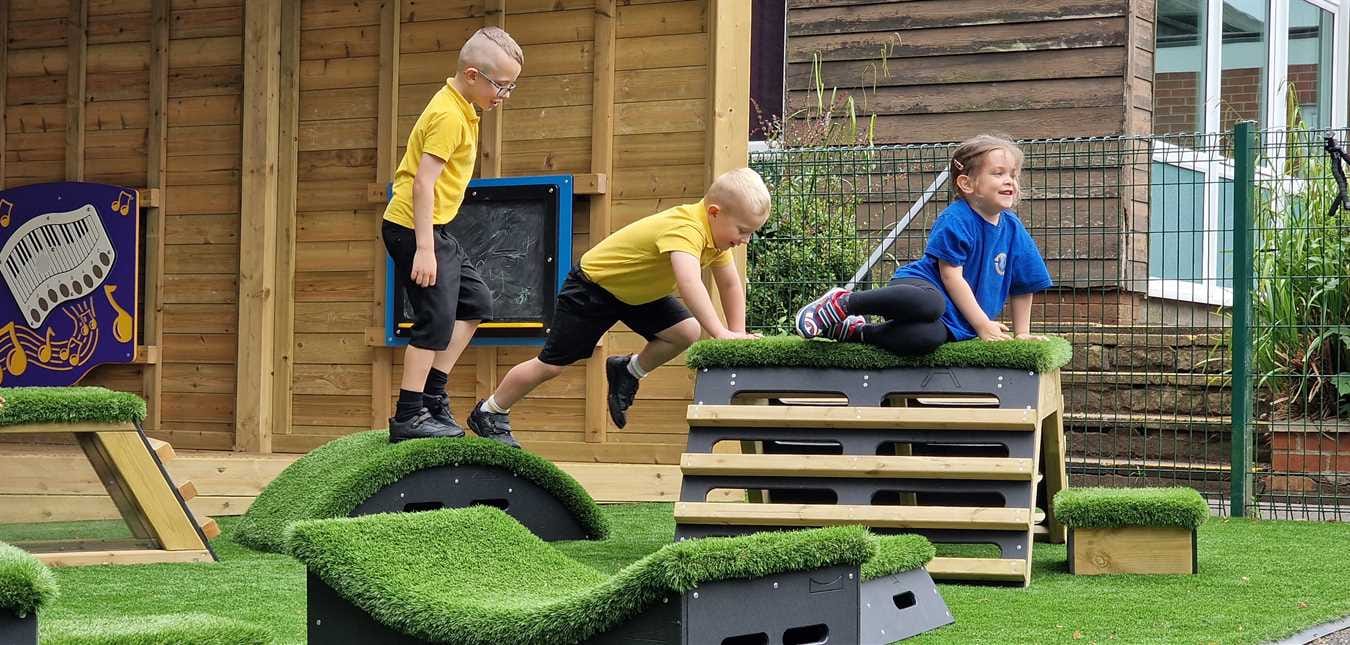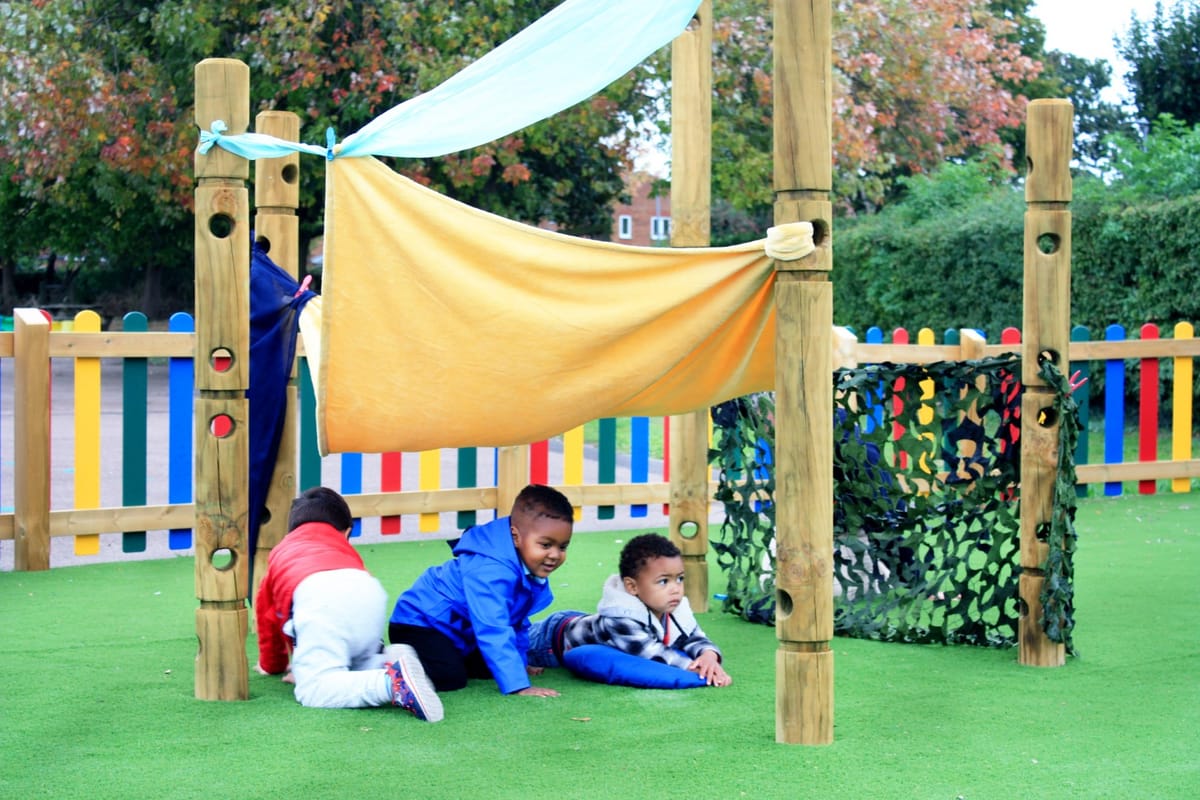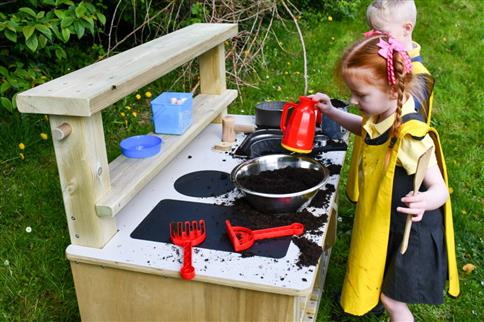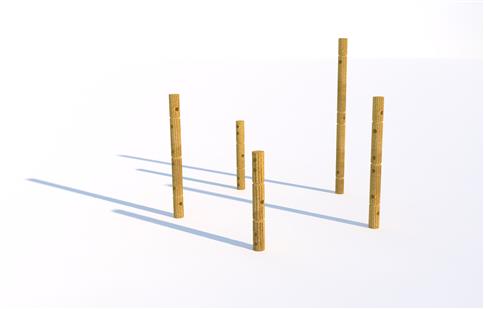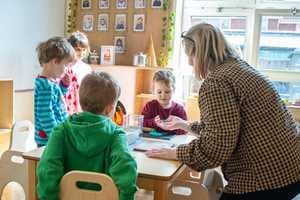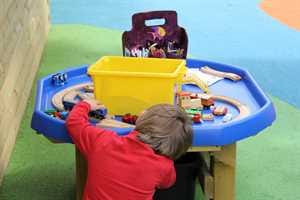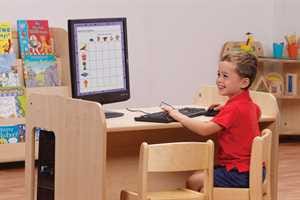
Children's Health
The International Day of Play
‘Play’ is at the heart of everything we do here at Pentagon Play. Over the last 25 years we have designed and installed a range of playspaces with the needs of children at the forefront.
Childhood best friends Andy and Michael turned their love of adventurous play into a company which transforms play experiences for millions of children in the UK! Andy and Michael’s vision has always been to build fun, inspirational and inclusive playground spaces where pupils can thrive.
The International Day of Play - 11th June
Here at Pentagon Play, we were excited to hear the news of an annual International Day of Play on the 11th June. The International Day of Play campaign is coordinated by a network of organisations initiated by the Lego Group.
The UN resolution for a day of play forges cooperation at global, national and local levels to elevate the importance of play across the world.
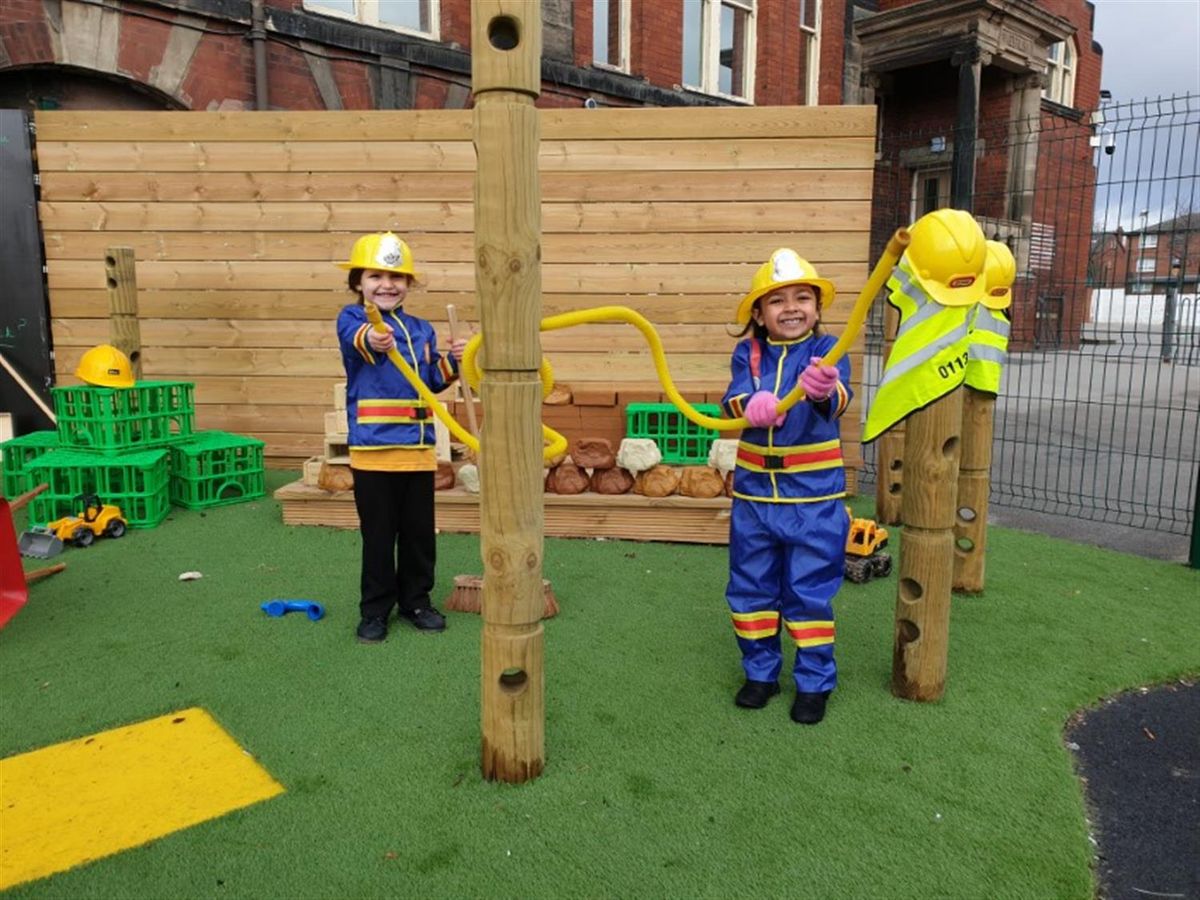
The main messages of the campaign align with Pentagon Play values that play helps pupils to stay healthy, develop creativity, learn to solve problems, make friends and supports wellbeing.
The Aim of the Day of Play
The aim of the ‘Day of Play’ is to celebrate and protect every child’s right to play regardless of obstacles. Play is an essential part of children’s lives in helping them to reach their potential, work together and discover new talents.
Research from the campaign states that “Three in five children would like to play more than they do now and eight in ten children state that playing makes them feel happy.”
At Pentagon Play we believe that children should have spaces and time to access quality play experiences on a daily basis. We support the ethos of the International Day of Play in order to establish change to ensure that play becomes an integrated element in educational and community settings.
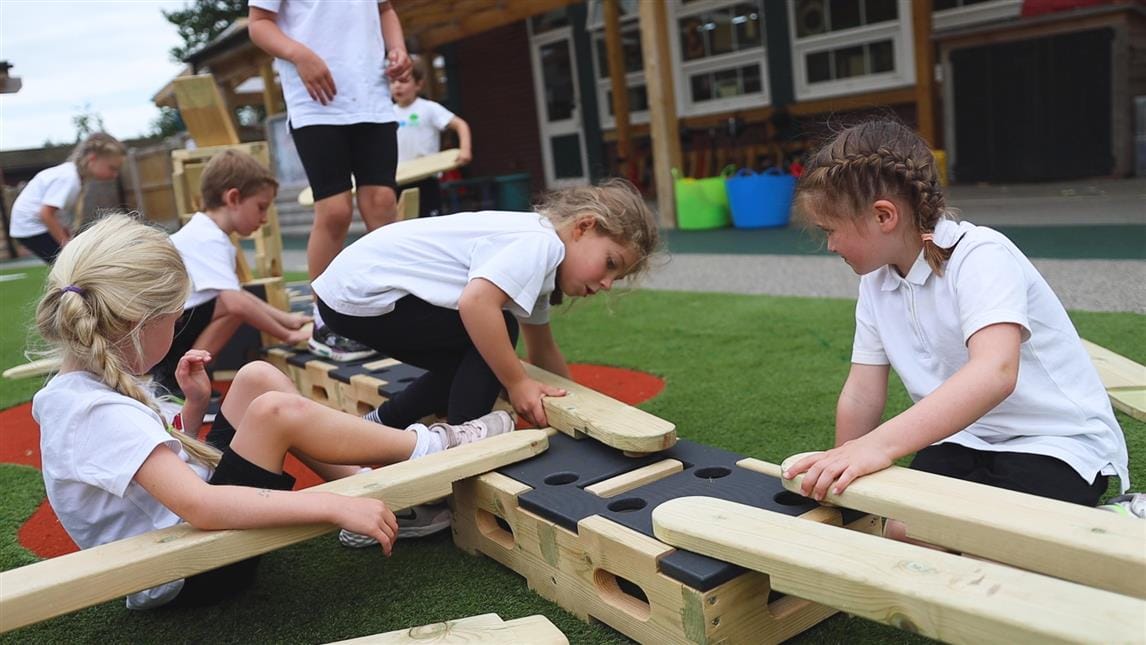
The International Day of Play organisation urges schools and parents to take part on the day by creating some extra time to play and to celebrate the play movement by spreading awareness via social media whether through Facebook, Instagram or other channels.
What is Considered ‘Play’ in Education?
Do we make enough time for play in our current educational system? Is play being squeezed out of the school day and children’s lives altogether?
Greg Bottrill suggests that, “real play should be from the child and for the child.It should be open ended, give opportunities for self-chosen challenges, offer limitless possibilities and endless interpretations.”
Real play is vitally important for children’s development. It allows for creativity, risk, collaboration and interpretation.
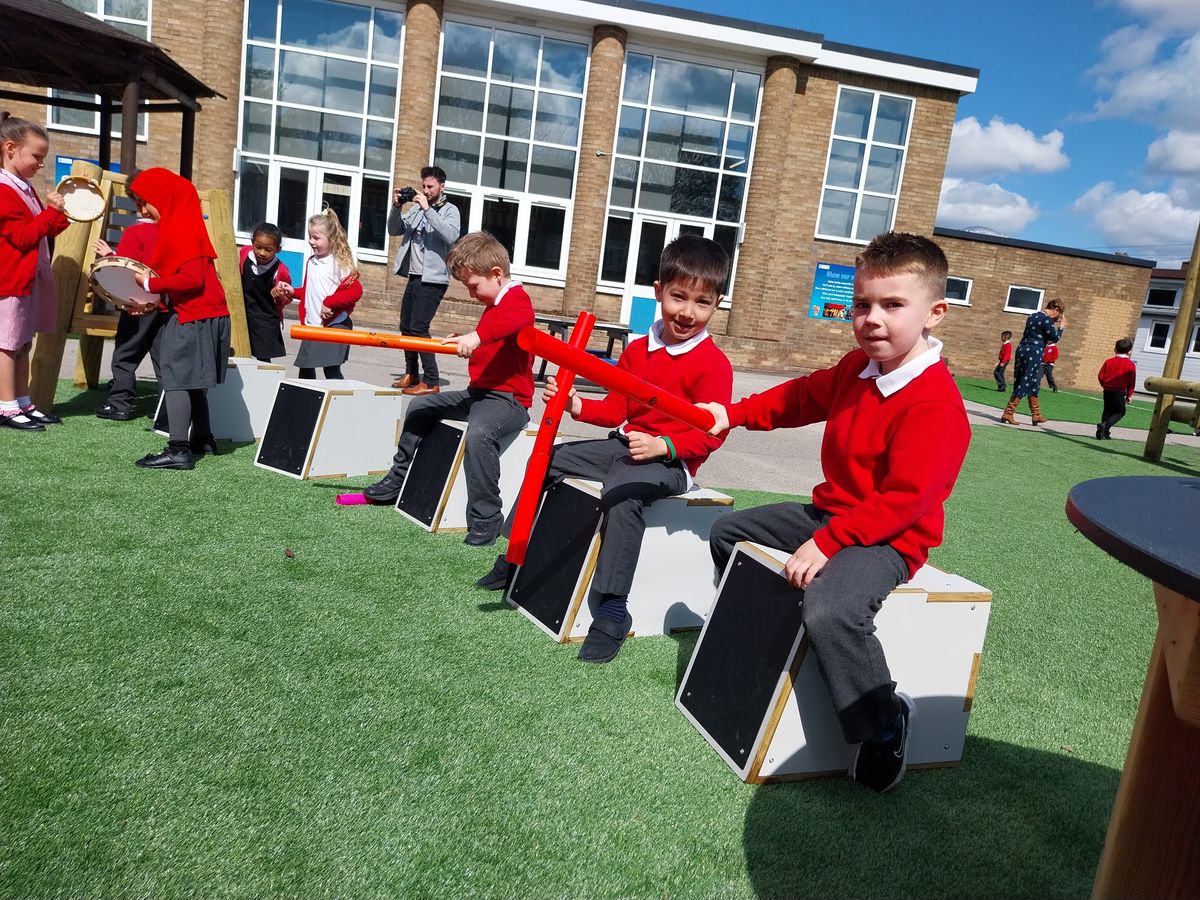
Adults must get down to a child’s level and through play help students to make sense of the world, learn to communicate, negotiate and express themselves.
The Foundations of Play
Froebel (1782-1852) was a strong advocate for play believing it allowed children to demonstrate personality, thinking and feeling. Froebel valued play because it helped children to make meaning and adults could become equal partners in play, supporting children through conversation.
Margaret McMillan (1860 -1931) believed that play lay at the heart of child development. Through her observations of children’s first-hand experiences in the garden (outdoors) she began to adopt a free-flow play curriculum.
The Outdoor Space as an Integral Part of Play
Ideally, there should be free flow from the indoor to the outdoor classroom, merging the two environments together.
An outdoor space brings pupils closer to nature and allows for possibilities which an indoor space cannot provide. Playing outdoors allows children greater opportunities to collaborate, to take some risks, make choices and connect to animals, plants, trees and flowers.
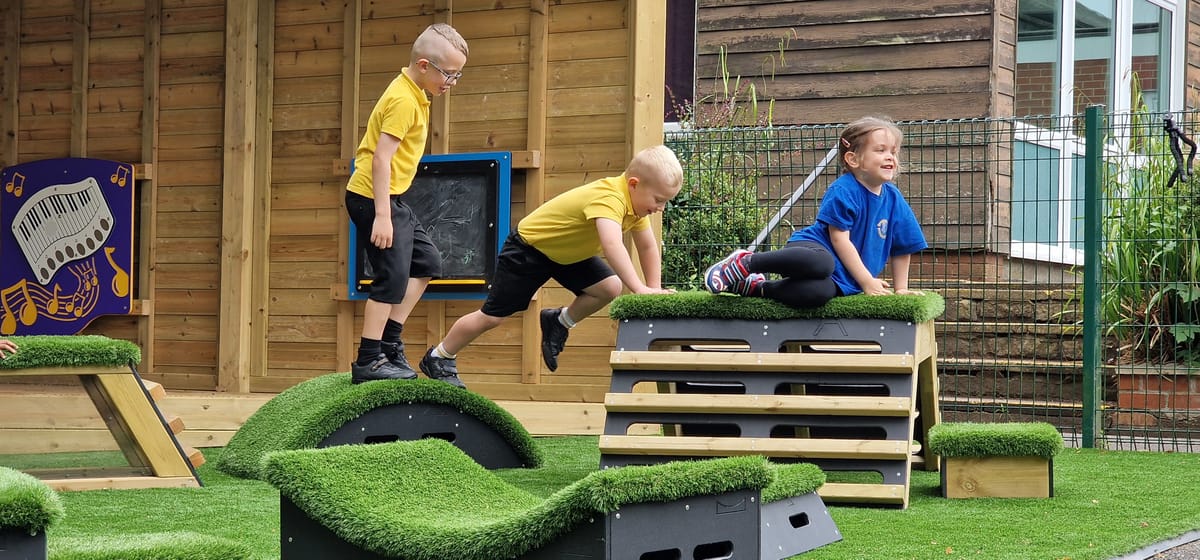
Children need to be active; they need to engage in physical play whether climbing, jumping, running or swinging and this needs to happen on a daily basis.
Pentagon Play can Help Schools to Play
Zoning can help to build effective outdoor learning environments. Here at Pentagon Play, we are experts in creating a stimulating learning zone. We've helped thousands of schools across the UK find the perfect stimulating playground equipment, creating an engaging and fun play area.
Some of the most popular playground equipment we have supplied are listed below in no particular order.
Sand and Water
Our range of Water Play Packages allow for individual, paired and large group collaborative play. Pupils can take on different roles as they mix, pour, fill and reposition water channels.
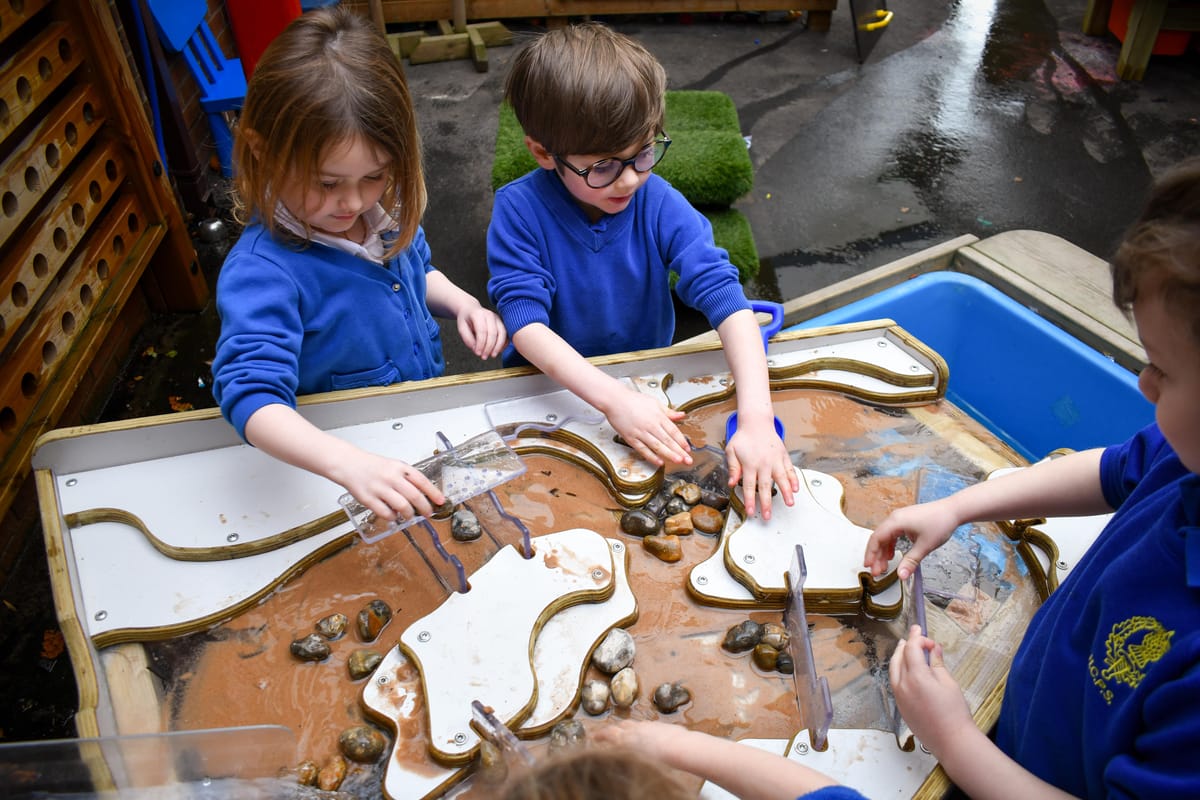
A large, covered Sand Box is big enough for many students to build together. Sand boxes promote collaborative play as pupils work together to form their creations, bringing imaginative ideas to life.
Mud Kitchens
Mud Kitchens offer inspiring learning opportunities and enable pupils to draw on their daily life experiences.
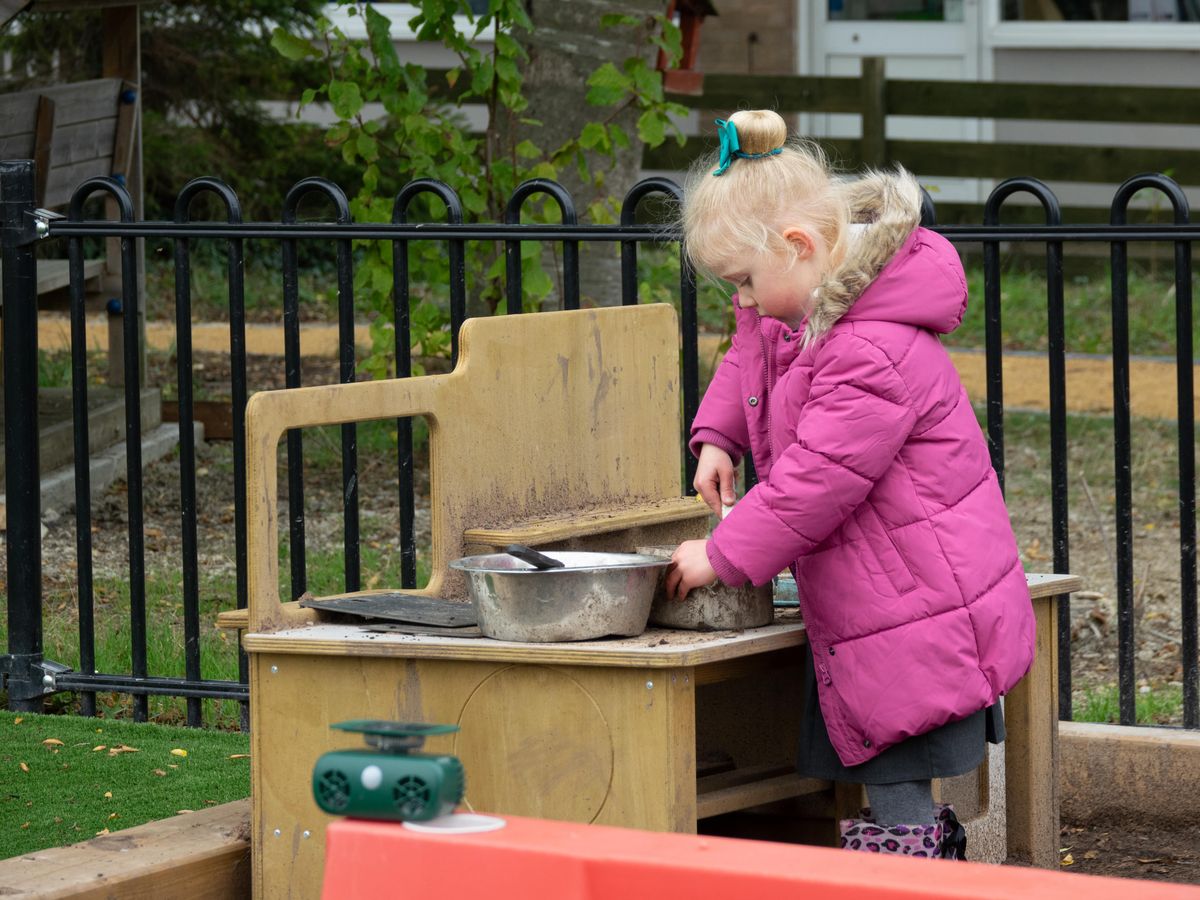
Our Pentagon Play mud kitchens allow more than enough space for role play activities, groups of children will even be able to make their own café! Handy shelving options allow for plenty of storage and our Mud Kitchen Island creates a central cooking area.
Mud kitchens help pupils to connect to the natural world through play: pine cones, sticks, leaves and petals can become ingredients, currency and cooking utensils. Pupils will have great fun working on and designing their own mud-filled menu!
Digging and Transferring
A Pentagon Play Mud Box creates the perfect storage solution and digging pit. Pupils enjoy manipulating different tools such as trowels, forks and buckets to dig and bury objects in the soil.
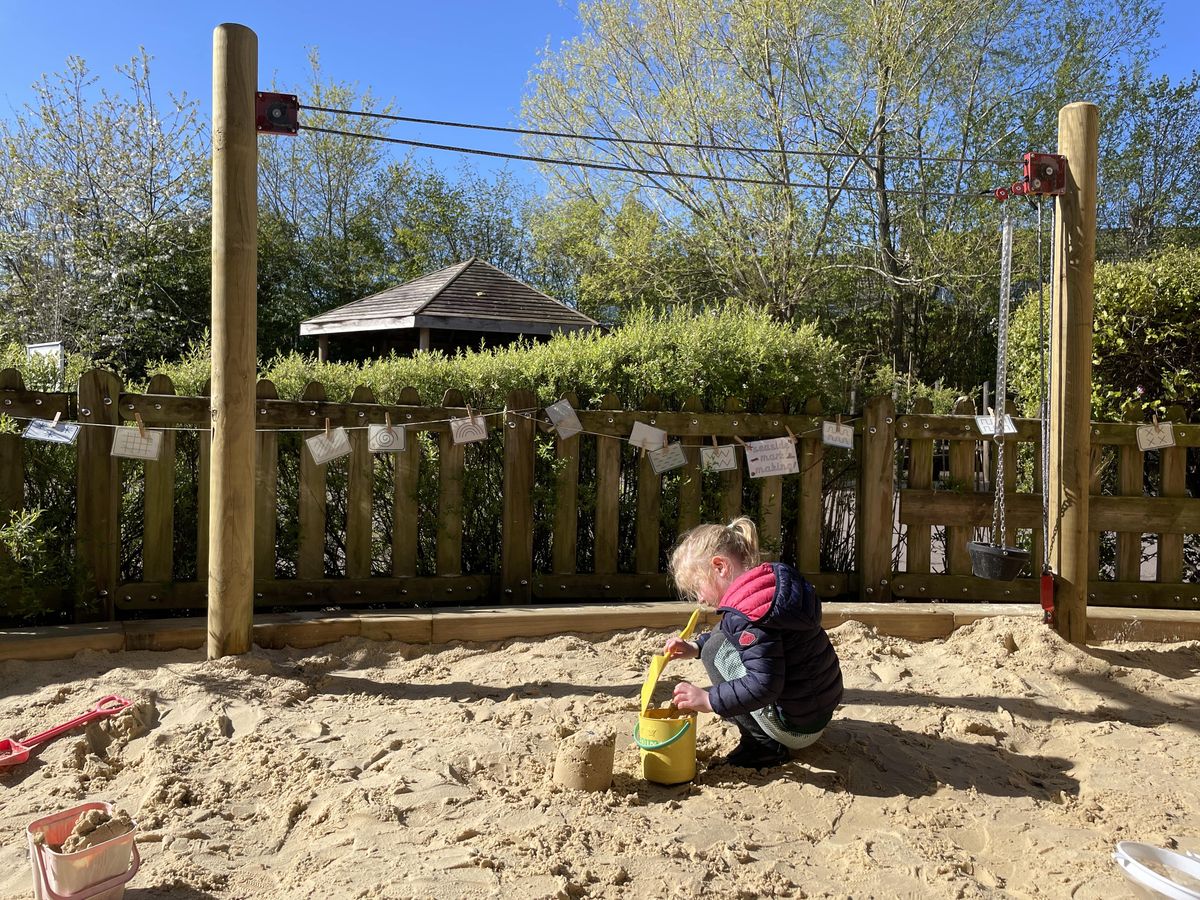
Our ever popular Pentagon Play Rope and Pulley Materials Mover is a fantastic addition to the outdoor learning environment. Pupils can connect with and explore different materials such as mud, sand, water or woodchip.
This product is ideal for promoting physical development from early years to both key stage 1 and 2 as children use arm and shoulder muscles to pull the rope and move the mechanisms.
A Garden Space
Just as Margaret McMillan observed, involving children in the garden establishes playful experiences as well as developing an understanding of the world.
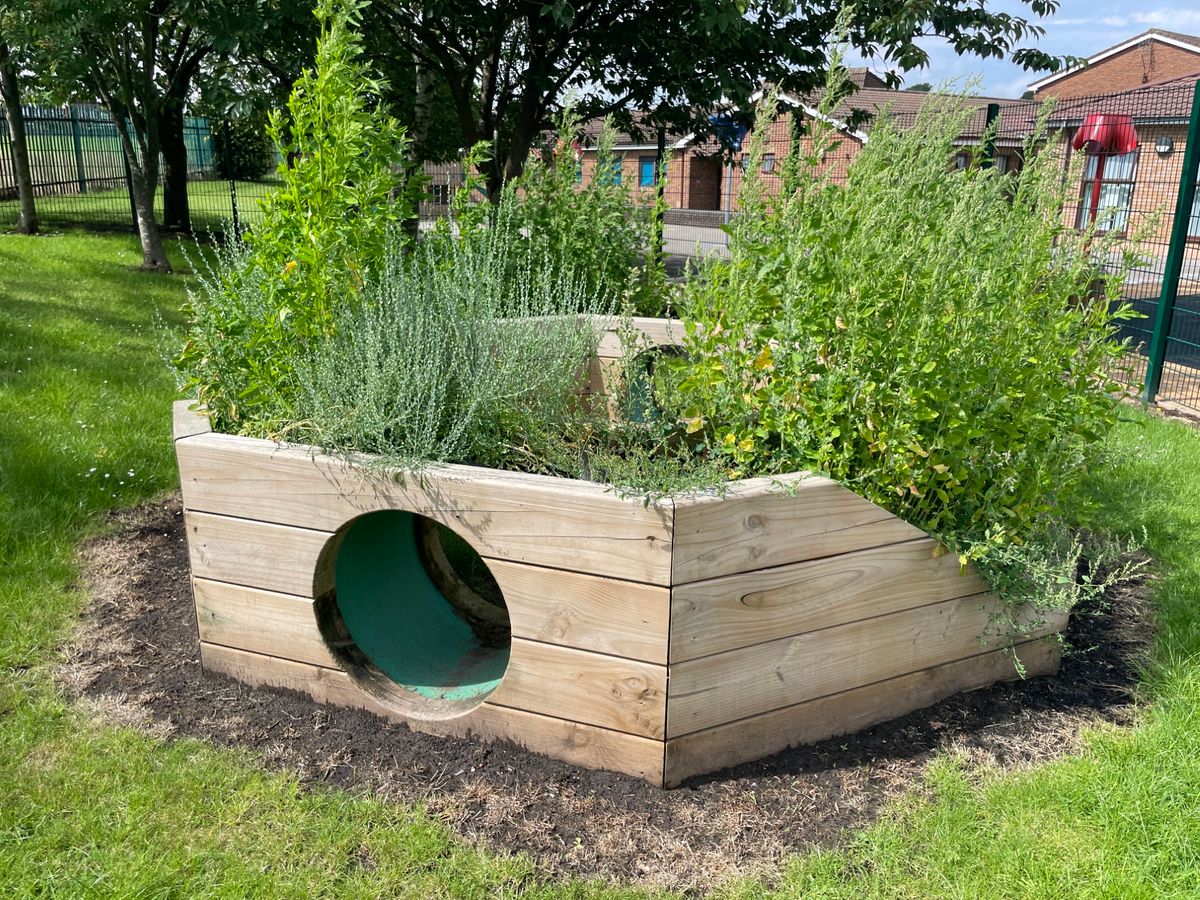
Pentagon Planters enable schools to create different growing areas. There could be different planting areas, some exclusively for pupils to dig, plant and search for insects and some areas for children, teachers, parents and grandparents to tend together where food can be grown for different classes in school to sample.
Obstacle Courses
One of our best selling Pentagon Play products is our much loved Get Set, Go! Blocks. Pupils love work together to reposition the blocks, making their own rules, assessing risks and creating instructions for play.
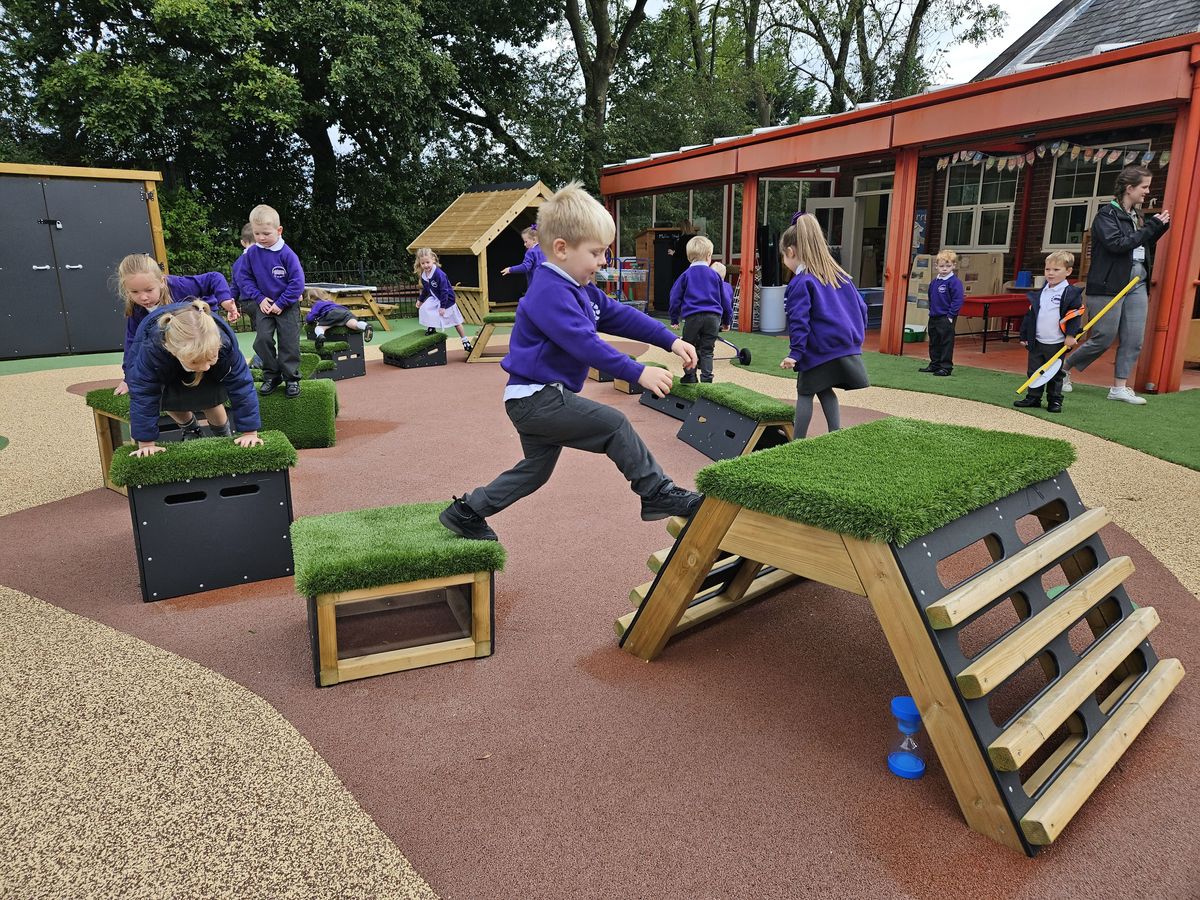
Pupils imaginations spring to life when using the blocks they may even become a car, a theatre or a rocket!
Den Making
Pentagon Play Den making posts are the ideal playground product for creating those small, safe, cosy playground spaces for pupils to play and chat.
The open-ended nature of the posts appeals to school and nurseries as a variety of different materials and resources can be chosen by children to create their space. Teachers can model den making processes and rich communication will follow.
Gaining First-hand Experiences through Play
Children need direct and real playful experiences. Through play children manipulate, explore, discover and practise in order to develop competence in skills. When children experience daily outdoor play they develop proficiency and control, showing greater self-confidence and willingness to have a go.
Pentagon Play can help to offer exciting, rich and powerful first-hand experiences through free flow play opportunities.
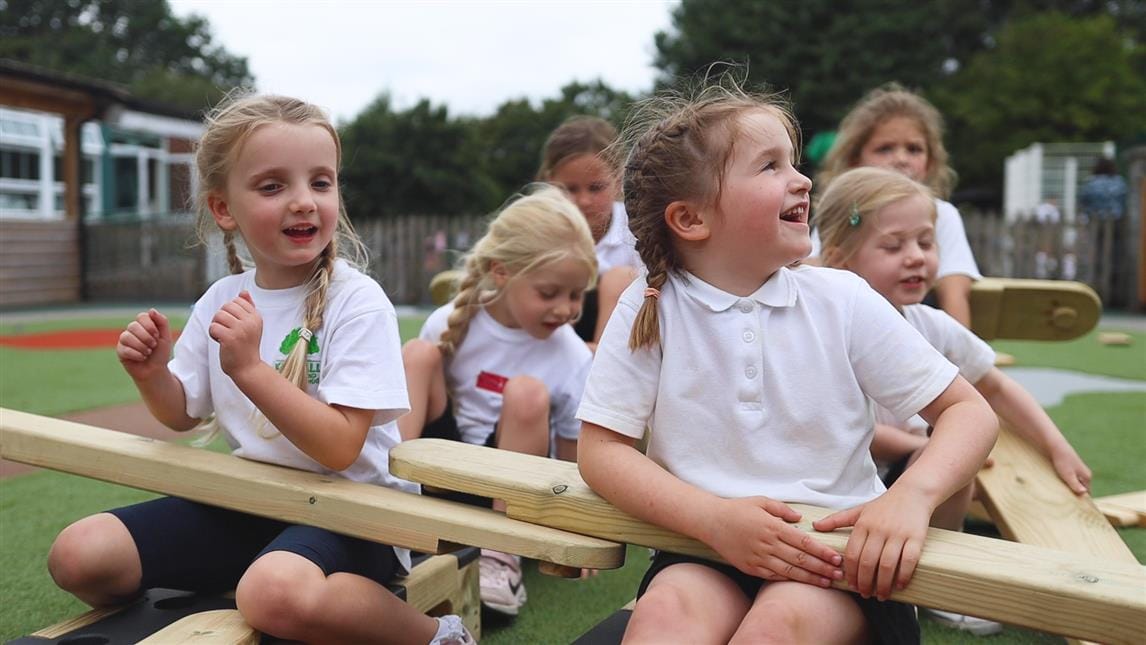
Over time children learn to ride their trike around the track, make marks on the chalkboard and tie fabric through the den posts. In order to achieve these goals children need practise. They need to repeat over and over again and they need a wide range of opportunities to do this.
The Power of Repetition
Through repetition pupils consolidate their learning. The same equipment can be available but not always set out in the same way.
For example the water play area could contain ice, bubbles, different sized containers or toy sea creatures. By doing this interest is maintained through repetition which deepens knowledge, exploration and manipulation.
Product Spotlight
All of us at Pentagon Play are very much looking forward to celebrating the first International Day of Play on the 11th June. We believe that every day should involve learning, playing and having fun in the outdoor playground.
We fully support and join the movement and hope that many schools and nurseries across the globe can engage children in free play on this day and every day.
